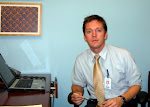
Bible translation status (red means that Bible is not in local language); http://worldmap.org
After a restless night, I spoke today at the Baylor Clinic’s morning prayer. Given how much I speak in front of groups as part of my current job, during such events my pulse rarely quickens. Earlie this week, when I was asked to stand in front of a full waiting room of children and caregivers and share a spiritual anecdote or teaching, however, the biochemical rush that couples fear immediately engulfed me, much like a fog. My cheeks warmed, my vision sharpened, and there was a soft but high-pitched buzzing in my ears.
I am no stranger to anxiety, but did not expect to feel it as a result of being invited to speak for five minutes to a group of our patients, especially when I had two days to prepare. I actually quite enjoy talking to groups of people, and I have become able to speak for about any length of time when the topic is pediatric HIV. I can speak about how the HIV virus looks, acts, and kills, how it evades capture and perplexes scientists. I can talk about the effects of the virus (physical, economic, social, cultural, political) and how Baylor’s Botswana-based programs are responding to this virus (clinically, programmatically, etc). I can explain why I believe that our response to the pandemic will define our generation…for better or worse. I can talk about how I feel when I watch an HIV-infected child die a preventable death, and how I feel when watching a child near death not only live but thrive.
But, when it comes to sharing my personal thoughts on spirituality with my African counterparts, words do not come as easily.
The two primary reasons for this are obvious: I am a Caucasian physician from rural Texas and, though a Methodist and dedicated to the golden rule and several others, I do not claim (or necessarily aspire) to have spiritual insight, per se.
So, I decided to look for some. For millennia, when seeking such insight, soul-searchers have reflected while peering into the night’s sky or perhaps sitting quietly in a peaceful place, legs crossed. I did not do this. I leaned over my desk and opened http://www.google.co.bw/.
My first search terms were: “Africa” and “Bible”
To be continued...
I am no stranger to anxiety, but did not expect to feel it as a result of being invited to speak for five minutes to a group of our patients, especially when I had two days to prepare. I actually quite enjoy talking to groups of people, and I have become able to speak for about any length of time when the topic is pediatric HIV. I can speak about how the HIV virus looks, acts, and kills, how it evades capture and perplexes scientists. I can talk about the effects of the virus (physical, economic, social, cultural, political) and how Baylor’s Botswana-based programs are responding to this virus (clinically, programmatically, etc). I can explain why I believe that our response to the pandemic will define our generation…for better or worse. I can talk about how I feel when I watch an HIV-infected child die a preventable death, and how I feel when watching a child near death not only live but thrive.
But, when it comes to sharing my personal thoughts on spirituality with my African counterparts, words do not come as easily.
The two primary reasons for this are obvious: I am a Caucasian physician from rural Texas and, though a Methodist and dedicated to the golden rule and several others, I do not claim (or necessarily aspire) to have spiritual insight, per se.
So, I decided to look for some. For millennia, when seeking such insight, soul-searchers have reflected while peering into the night’s sky or perhaps sitting quietly in a peaceful place, legs crossed. I did not do this. I leaned over my desk and opened http://www.google.co.bw/.
My first search terms were: “Africa” and “Bible”
To be continued...

No comments:
Post a Comment